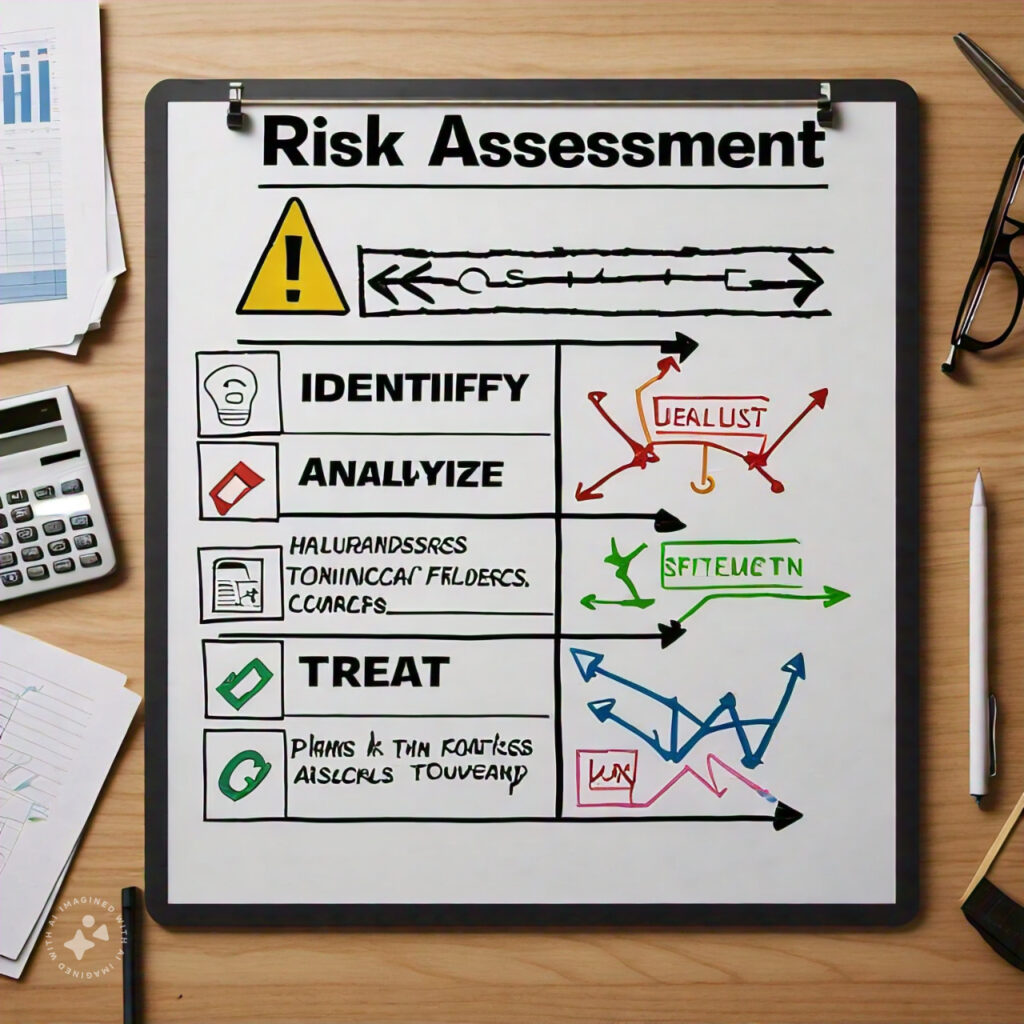
As a startup founder, securing funding is a critical step in turning your vision into a reality. Traditional funding methods, such as venture capital and angel investors, can be challenging to access, especially for early-stage startups. However, the rise of cryptocurrency and blockchain technology has opened up new avenues for funding, offering a more accessible and innovative way to raise capital.
Cryptocurrency funding has gained significant traction in recent years, with many startups successfully leveraging crypto to fuel their growth. In fact, according to a report by ICORating, the total amount raised through Initial Coin Offerings (ICOs) in 2020 alone exceeded $13 billion. This trend is expected to continue, with crypto funding becoming an increasingly popular option for startups.
In this article, we will explore the world of crypto funding, providing a comprehensive guide for entrepreneurs and startup teams looking to harness the power of cryptocurrency to fund their ventures. We will delve into the various crypto funding options, including ICOs, STOs, IEOs, and crypto crowdfunding, as well as discuss the importance of blockchain technology integration, regulatory compliance, and success stories from existing startups that have successfully utilized crypto funding.
Whether you’re a seasoned entrepreneur or just starting out, this guide will provide you with the knowledge and insights needed to navigate the complex landscape of crypto funding and make informed decisions about the best funding strategies for your startup.
Crypto Funding Options
Initial Coin Offerings (ICOs)
ICOs are a popular crypto funding method where startups issue their own cryptocurrency tokens to raise funds. Investors buy these tokens, hoping to profit from their potential increase in value.
Benefits:
- Access to global investors
- Potential for high returns
- Flexibility in token design
Risks:
- Regulatory uncertainty
- Market volatility
- Security risks
Security Token Offerings (STOs)
STOs are similar to ICOs but offer more security and regulatory compliance. They represent ownership in a company or asset, providing investors with legal rights.
Benefits:
- Increased regulatory compliance
- Greater investor protection
- Access to institutional investors
Risks:
- Higher costs and complexity
- Regulatory challenges
- Limited liquidity
Initial Exchange Offerings (IEOs)
IEOs are conducted on cryptocurrency exchanges, offering a more secure and regulated environment for fundraising.
Benefits:
- Increased security and trust
- Access to existing exchange users
- Faster fundraising process
Risks:
- Dependence on exchange reputation
- Limited control over fundraising process
- Regulatory risks
Crypto Crowdfunding
Crypto crowdfunding platforms allow startups to raise funds from a large number of investors, typically in exchange for tokens or equity.
Benefits:
- Access to a broad investor base
- Community engagement and marketing opportunities
- Flexibility in fundraising goals
Risks:
- Regulatory risks
- Platform fees and commissions
- Investor expectations and communication challenges
Crypto Investment Process
Receiving and Managing Crypto Investments
Once you’ve successfully raised funds through crypto funding options, it’s essential to manage and utilize these investments effectively.
Best Practices:
- Set up a secure wallet infrastructure
- Implement robust accounting and tracking systems
- Diversify investments to minimize risk
- Establish clear governance and decision-making processes
Utilizing Crypto Investments for Startup Growth
Crypto investments can be used for various purposes, such as:
- Product Development: Fueling innovation and R&D
- Marketing and Advertising: Expanding reach and brand awareness
- Talent Acquisition and Retention: Attracting and incentivizing top talent
- Operational Efficiency: Streamlining processes and reducing costs
Considerations:
- Cash flow management and liquidity
- Regulatory compliance and tax implications
- Investor expectations and reporting
- Integration with traditional funding sources
Blockchain Technology Integration
Blockchain technology offers numerous benefits for startups, including:
- Transparency and Security: Immutable ledger technology ensures data integrity
- Smart Contracts: Automating processes and reducing intermediaries
- Decentralized Applications (dApps): Building scalable and resilient applications
Best Practices:
- Conduct thorough blockchain use case analysis
- Partner with experienced blockchain developers
- Ensure regulatory compliance and data protection
Blockchain Technology Integration

Understanding Blockchain Technology
Blockchain technology is a decentralized, distributed ledger that records transactions and data across a network of computers. It enables secure, transparent, and tamper-proof data management.
Key Components:
- Decentralized Network: A network of computers verifying and validating transactions
- Distributed Ledger: A shared ledger recording transactions and data
- Cryptography: Secure encryption and decryption methods
- Consensus Mechanisms: Algorithms ensuring network agreement on transactions
Incorporating Blockchain into Startup Operations
Startups can leverage blockchain technology in various ways:
- Supply Chain Management: Tracking and verifying product origin, quality, and movement
- Identity Verification: Securely managing user identities and data
- Smart Contracts: Automating business processes and agreements
- Decentralized Finance (DeFi): Accessing alternative funding and financial services
Benefits:
- Increased Security: Tamper-proof data management
- Transparency: Real-time tracking and verification
- Efficiency: Automated processes and reduced intermediaries
- Innovation: New business models and revenue streams
Challenges:
- Scalability: Limited transaction capacity and speed
- Regulatory Uncertainty: Evolving legal and regulatory frameworks
- Adoption: Mainstream acceptance and understanding
- Interoperability: Integration with existing systems and technologies
Crypto Regulatory Compliance
Navigating Legal and Regulatory Requirements
The crypto regulatory landscape is constantly evolving, with new laws and guidelines emerging globally. Startups must stay informed and adapt to ensure compliance.
Key Regulatory Areas:
- Anti-Money Laundering (AML) and Know Your Customer (KYC): Identity verification and financial crime prevention
- Securities and Exchange Commission (SEC) Regulations: Token classification and registration requirements
- General Data Protection Regulation (GDPR): Data privacy and protection
- Taxation: Crypto-specific tax laws and reporting requirements
Best Practices:
- Stay Informed: Monitor regulatory updates and changes
- Consult Experts: Engage with legal and regulatory professionals
- Implement Compliance Programs: Establish AML, KYC, and data protection measures
- Conduct Regular Audits: Ensure ongoing compliance and risk assessment
Ensuring Compliance with Crypto Funding Regulations
Startups must ensure compliance with regulations specific to crypto funding, such as:
- Token Sale Regulations: Complying with SEC guidelines for token sales
- Crypto Exchange Regulations: Meeting exchange-specific requirements
- Investor Protection: Disclosing risks and ensuring investor understanding
Consequences of Non-Compliance:
- Fines and Penalties: Financial repercussions for regulatory breaches
- Reputation Damage: Loss of investor and customer trust
- Business Disruption: Forced changes to business operations or shutdown
Success Stories and Case Studies
Examples of Successful Startups Using Crypto Funding
Several startups have successfully leveraged crypto funding to fuel their growth:
- Ethereum: Raised $18 million in 2014 through an ICO, now a leading blockchain platform
- Filecoin: Raised $257 million in 2017 through an ICO, now a decentralized storage network
- Brave: Raised $35 million in 2017 through an ICO, now a privacy-focused web browser
- Coinbase: Raised $75 million in 2013 through traditional funding, now a leading crypto exchange
Lessons Learned and Best Practices
Analyzing successful startups’ experiences reveals key takeaways:
- Clear Vision and Strategy: Define a compelling mission and use case
- Strong Team and Partnerships: Assemble a skilled team and collaborate with industry players
- Effective Marketing and Community Building: Engage with potential investors and users
- Regulatory Compliance and Risk Management: Prioritize compliance and mitigate risks
Common Challenges and Mistakes to Avoid
Startups should be aware of common pitfalls:
- Lack of Regulatory Compliance: Failure to adhere to legal and regulatory requirements
- Poor Token Economics: Inadequate token design and distribution
- Insufficient Marketing and Community Engagement: Failure to build a strong user base
- Inadequate Risk Management: Neglecting to address potential risks and challenges
Raising Funds with Crypto

Guidance on Raising Capital Using Cryptocurrencies
Raising funds with crypto requires a well-planned strategy:
- Define Your Funding Goals: Determine the amount of funds needed and intended use
- Choose the Right Funding Option: Select the most suitable crypto funding method (e.g., ICO, STO, IEO)
- Prepare a Compelling Pitch: Develop a clear and persuasive pitch highlighting your project’s value proposition
- Build a Strong Team: Assemble a skilled and experienced team to execute your vision
Strategies for Successful Crypto Funding Campaigns
To increase the chances of a successful crypto funding campaign:
- Leverage Social Media and Marketing: Utilize social media platforms and marketing channels to reach potential investors
- Engage with the Crypto Community: Build relationships with influencers, investors, and potential users
- Offer Incentives and Rewards: Provide incentives for early investors and contributors
- Ensure Transparency and Trust: Maintain open communication and transparency throughout the funding process
Common Mistakes to Avoid When Raising Funds with Crypto
Startups should be aware of common mistakes:
- Insufficient Preparation: Failure to adequately prepare for the funding process
- Poor Timing: Launching a funding campaign during market downturns or unfavorable conditions
- Lack of Transparency: Failure to disclose important information or maintain open communication
- Unrealistic Expectations: Overestimating funding potential or underestimating challenges
Token Creation and Issuance
Process of Creating and Issuing Tokens
Token creation and issuance involve several steps:
- Token Conceptualization: Define the token’s purpose, functionality, and economics
- Token Design: Determine the token’s technical specifications, such as consensus algorithm and supply
- Smart Contract Development: Create and deploy smart contracts to manage token behavior
- Token Auditing and Testing: Conduct thorough audits and testing to ensure security and functionality
- Token Distribution: Distribute tokens to investors, users, or other stakeholders
Best Practices for Token Creation and Issuance
To ensure successful token creation and issuance:
- Follow Established Standards: Adhere to industry standards, such as ERC-20 or ERC-721
- Conduct Thorough Audits: Engage reputable auditors to identify and address potential vulnerabilities
- Ensure Regulatory Compliance: Comply with relevant regulations and laws
- Maintain Transparency: Disclose token information, smart contract code, and distribution details
- Plan for Scalability: Design tokens with scalability in mind to accommodate growing demand
Common Mistakes to Avoid in Token Creation and Issuance
Startups should avoid common mistakes:
- Insufficient Testing: Failure to thoroughly test tokens and smart contracts
- Poor Token Economics: Inadequate token design and distribution
- Lack of Transparency: Failure to disclose important token information
- Inadequate Security Measures: Neglecting to implement robust security measures
- Unrealistic Expectations: Overestimating token adoption or value
Crypto Crowdfunding
Exploring Platforms and Strategies for Crypto Crowdfunding
Crypto crowdfunding has emerged as a popular method for blockchain-based projects to raise funds, build a community, and validate their ideas. Several platforms have risen to prominence, each with its unique features and focus areas:
- Kickstarter: A traditional crowdfunding platform that has integrated crypto payments, allowing projects to accept Bitcoin and other cryptocurrencies.
- Indiegogo: A crowdfunding platform that has hosted several high-profile crypto projects, including the Foldable Smartphone by Royole.
- CoinList: A crypto crowdfunding platform that has hosted notable projects like Filecoin and Blockstack, raising over $1 billion in total.
- Republic: A crypto crowdfunding platform that allows startups to raise funds through token sales and equity crowdfunding, with a focus on regulatory compliance.
Strategies for Successful Crypto Crowdfunding Campaigns
Successful crypto crowdfunding campaigns often employ a combination of the following strategies:
- Build a Strong Community: Engage with potential backers through social media, forums, and online events to build a loyal community around your project.
- Offer Incentives and Rewards: Provide early backers with exclusive rewards, such as discounted tokens or priority access to products.
- Ensure Transparency and Trust: Maintain open communication channels, provide regular updates, and showcase a clear roadmap to build trust with backers.
- Leverage Social Media and Marketing: Utilize social media platforms, influencer marketing, and content marketing to reach a wider audience.
Real-Life Examples of Successful Crypto Crowdfunding Campaigns
- Filecoin: Raised $257 million on CoinList in 2017 for its decentralized storage network.
- Blockstack: Raised $28 million on CoinList in 2019 for its decentralized app ecosystem.
- Foldable Smartphone by Royole: Raised $1.1 million on Indiegogo in 2019 for its innovative foldable smartphone.
Best Practices for Crypto Crowdfunding
To ensure a successful crypto crowdfunding campaign:
- Clearly Define Your Project: Provide a concise and compelling project description, highlighting its unique value proposition.
- Set Realistic Funding Goals: Determine a realistic funding goal and timeline, taking into account marketing and operational costs.
- Engage with Backers: Respond to backer questions and comments in a timely manner, fostering a sense of community and ownership.
- Provide Regular Updates: Keep backers informed of project progress, milestones, and challenges, ensuring transparency and trust.
Crypto Crowdfunding Challenges and Risks

Common Challenges in Crypto Crowdfunding
- Regulatory Uncertainty: Navigating complex and evolving regulatory environments
- Market Volatility: Managing risks associated with cryptocurrency price fluctuations
- Security Risks: Protecting against hacking, phishing, and other security threats
- Reputation Management: Maintaining a positive reputation and community trust
Mitigating Risks in Crypto Crowdfunding
- Conduct Thorough Research: Understand the regulatory environment, market conditions, and potential security risks
- Develop a Robust Security Strategy: Implement robust security measures to protect against hacking and phishing
- Foster a Strong Community: Build a loyal community through transparent communication and regular updates
- Diversify Funding Sources: Consider multiple funding sources to reduce dependence on a single platform or method
Real-Life Examples of Crypto Crowdfunding Challenges
- ** DAO Hack:** A high-profile hacking incident that highlighted security risks in crypto crowdfunding
- Tezos Controversy: A regulatory dispute that demonstrated the importance of clear communication and transparency
Investor Connections
Building Relationships with Crypto Investors
Building relationships with crypto investors is crucial for startups seeking funding. This can be achieved through:
- Networking Events: Attend conferences, meetups, and webinars to connect with potential investors
- Social Media: Leverage social media platforms to showcase your project and engage with investors
- Online Communities: Participate in online forums and groups focused on crypto and blockchain
- Warm Introductions: Leverage mutual connections to secure introductions to potential investors
Types of Crypto Investors
- Venture Capitalists (VCs): Invest in startups in exchange for equity
- Angel Investors: High net worth individuals investing in early-stage startups
- Family Offices: Private wealth management firms investing in crypto assets
- Institutional Investors: Pension funds, endowments, and other institutional investors entering the crypto market
Best Practices for Engaging with Crypto Investors
- Clear and Concise Pitch: Develop a compelling pitch highlighting your project’s unique value proposition
- Transparent Communication: Provide regular updates and transparent communication
- Robust Due Diligence: Be prepared to answer detailed questions about your project
- Flexibility: Be open to negotiations and feedback from investors
Real-Life Examples of Successful Investor Connections
- Coinbase: Raised $75 million from investors like Andreessen Horowitz and NYSE
- (link unavailable) Raised $70 million from investors like Lightspeed Venture Partners and Google Ventures
Funding Platform Selection

Choosing the Right Funding Platform for Your Crypto Project
Selecting the right funding platform is crucial for a successful crypto crowdfunding campaign. Consider the following factors:
- Fees and Charges: Understand the platform’s fee structure and charges
- Security Measures: Evaluate the platform’s security measures and track record
- User Base: Consider the platform’s user base and potential reach
- Regulatory Compliance: Ensure the platform is compliant with relevant regulations
Popular Funding Platforms for Crypto Projects
- CoinList: A popular platform for token sales and crypto crowdfunding
- Republic: A platform offering token sales, equity crowdfunding, and regulatory compliance
- Kickstarter: A traditional crowdfunding platform with crypto integration
- Indiegogo: A crowdfunding platform hosting crypto and blockchain projects
Case Studies: Successful Funding Platform Selection
- Filecoin: Raised $257 million on CoinList, leveraging its large user base and security measures
- Blockstack: Raised $28 million on CoinList, utilizing its regulatory compliance and token sale expertise
- Foldable Smartphone by Royole: Raised $1.1 million on Indiegogo, tapping into its existing user base and marketing channels
Best Practices for Funding Platform Selection
- Research and Due Diligence: Thoroughly research and evaluate potential funding platforms
- Clear Project Requirements: Define your project’s specific needs and requirements
- Platform Demo and Testing: Test the platform’s features and user experience
- Community Feedback: Engage with the platform’s community and gather feedback
Conclusion
Crypto crowdfunding has the potential to democratize access to funding for blockchain-based projects, but it’s crucial to approach it with caution and careful planning. By understanding the landscape, selecting the right funding platform, building investor connections, and engaging with the community, projects can successfully navigate the crypto crowdfunding space and achieve their funding goals.
Recap of Key Takeaways
- Crypto crowdfunding offers a promising alternative for blockchain-based projects to raise funds and build a community
- Funding platform selection is crucial, considering factors like security, user base, fees, and regulatory compliance
- Investor connections and community engagement are vital for a successful campaign
- Regulatory compliance and risk management are essential for navigating the crypto crowdfunding landscape
Future Outlook
- Increased adoption of crypto crowdfunding by mainstream projects and investors
- Improved regulatory clarity and frameworks for crypto crowdfunding
- Enhanced security measures and investor protection
- Growing importance of community engagement and investor connections






